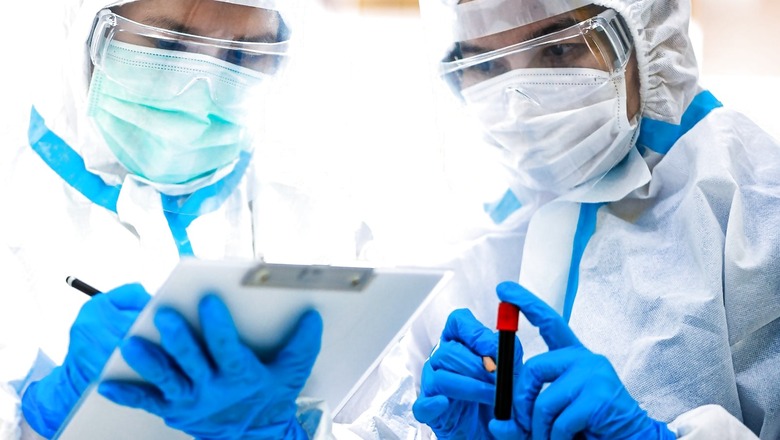
views
Patients suffering from head and neck cancer now have fresh hope with a new treatment called ‘low-dose Nivolumab’, which slashes the therapy cost from Rs 62 lakh to a mere Rs 3.5 lakh.
Dr Vijay Patil and his team at Tata Memorial Hospital in Maharashtra have introduced a “low-cost” innovation to prolong the lives of severely ill head and neck cancer patients.
Nivolumab, a monoclonal antibody, which is used in the treatment of a variety of cancers, costs a tenth of the regular dosing of chemotherapy, which is otherwise the most common treatment for such types of cancers.
“While immunotherapy (or chemotherapy) is expensive and costs upwards of Rs 60 lakh, it is out of reach for 97% of the cancer patients that can benefit from it,” Patil told News18.com.
The fall in price, doctors claim, will improve access to prescriptions for this treatment from just 2.8% to more than 75%.
“The low-dose immunotherapy drug is available at Rs 25,000 per month as against eight times the cost of the regular dosing. The low-dose drug brings the cost of treatment from Rs 62 lakh to Rs 3.3 lakh per year,” Patil said.
Quoting the published data, Patil said that only 2.8% of patients in India can afford anti-cancer drugs.
“Majority of people just cannot afford the treatment and choose to die… Indeed, it is a sad situation. It is depressing not only for the patients but also for the cancer-treating medical oncologists,” he said. “Helpless t not being able to give medication because of cost is a dreadful feeling. Hence something had to be done about this and this was the main idea behind executing the study.”
Results of a trial conducted by Patil’s team ‘encouraging’
Dr Patil along with his team conducted a clinical trial, which was published in the Journal of Clinical Oncology in October.
The research claimed to be the first-ever randomised study to demonstrate that the addition of low-dose nivolumab to metronomic chemotherapy improved overall survival and is an alternative standard of care for those who cannot access full-dose immunotherapy drugs.
Metronomic chemotherapy is a treatment in which low doses of anti-cancer drugs are given on a continuous basis for a longer period. It is known to have fewer side effects than standard chemotherapy.
The team at Tata Memorial Hospital tested the innovative therapy on 76 patients with metastatic head and neck cancer. This group was compared with another group of 75 similar patients who only got chemotherapy.
All 76 were able to prolong their life as compared to the other group of 75 similar patients who only got chemotherapy.
“This therapy is likely to benefit more than 2-3 lakh patients each year and over 10 lakh across the globe,” Patil said.
What is Nivolumab?
Nivolumab is a checkpoint inhibitor that activates the T-cells – one of the important white blood cells of the immune system– to kill cancer.
The dose used in international studies is 3 milligrams per kilogram once every two weeks or a flat dose of 240 milligrams, two times a week.
According to the lead of the study, Dr Patil, there was a theoretical possibility of benefit with this low dose, once you observe the way of functioning of the drug.
“On the basis of this, the idea was conceived that even 1/10th of the standard dose can be effective,” he said.
‘People choose to die instead of opting for treatments’
Dr Patil said that he and his team planned the research and executed it with the sole objective of making treatment affordable for lakhs of cancer patients in India and abroad.
“In cancer, only research improves outcomes and needs to be done more often in India,” he said while adding that investment in research and development of new drugs and molecules is the key.
He pointed out that there is a need for positive steps from low and middle-income countries (LMICs) for addressing this disparity in the accessibility of high-cost anti-cancer drugs.
“The development of generic or biosimilar molecules and innovative studies on low-dose regimens or longer-duration treatment schedules would help bring down the cost of treatment and improve accessibility in these regions. Research is the job of a cancer-treating physician,” he said. “The responsibility of providing administrative support, funding, and a favourable environment for research is of the government.”
While multiple insurance policies are available in India, they do not support palliative treatment or treatment with targeted or immunotherapy, thus limiting the usefulness of such insurance in treating cancer patients, he said.
“There is an urgent need for national and international bodies to have a guideline on what treatments need to be reimbursed by insurance. This is where the government can help,” Patil said.
Read all the Latest India News here




















Comments
0 comment